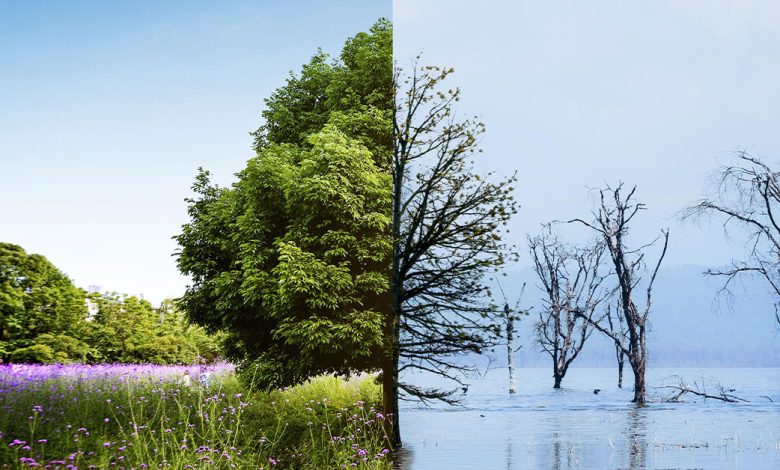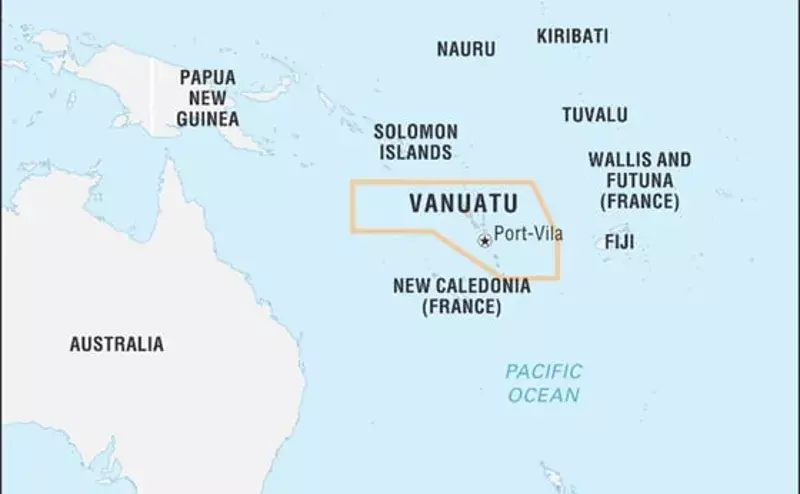Climate Change and the Role of International Courts
[GS Paper 1 - Climate Change and Environment]

Context – A group of 16 countries has launched a gallant effort to fight the problem of climate change, an existential threat to human civilization at the United Nations (UN). Led by Vanuatu, an island country in the South Pacific Ocean, the group seeks an advisory opinion from the International Court of Justice (ICJ) on the issue of climate change.
Emergence of Vanuatu’s Initiative
- Failure to deliver concrete solutions to Climate Change: Notwithstanding the presence of several international legal instruments on climate change such as the UNFCCC, the Kyoto Protocol and the Paris Agreement, the international community has fallen short of delivering concrete solutions to the problem of climate change.
- COP-27 Fails to Resolve Differences: The recently concluded 27th UN Climate Change Conference (COP-27) where countries failed to narrow their differences on critical issues such as reducing greenhouse gas emissions. Countries were unable to reach a consensus on meaningful action.
- Vulnerability of Small Island Developing (SID) states: SID states such as Vanuatu are most vulnerable to rising temperatures and sea levels. Accordingly, in September 2021, Vanuatu launched an initiative, through the UNGA, to seek an advisory opinion from the ICJ to clarify the legal obligations of all countries to prevent and redress the adverse effects of climate change.
- Since then, the initiative has gathered momentum with more than 100 countries backing the idea. Specifically, the draft resolution piloted by Vanuatu seeks answers to the following questions from the ICJ.
What are the Legal Questions involved?
- Questions: What are the international law obligations of countries toward the protection of the climate system from anthropogenic emissions of greenhouse gases for the present and future generations?
- Answer: The ICJ will interpret existing climate change law and use customary international law to fill gaps, including the ‘no-harm’ (states are under an obligation that activities within their jurisdiction do not damage other countries) principle, to clarify the Paris Agreement.
- Question: What are the legal consequences for states that have caused significant harm to the climate system, the SID states and other people of the present and future generations?
- Answer: Demands for climate reparations are made as part of climate justice, where historically high-emitting rich countries compensate developing countries affected by climate change. The ICJ can provide legal principles for the ‘loss and damage’ fund.
Confusion over Loss and Damage Fund
- Little clarity on funding: At COP-27, it was agreed to establish a loss and damage fund to financially assist vulnerable developing countries. However, there is little clarity on which countries will provide the funding.
- Historical responsibility yet to be determined: Moreover, the connection between funding and the historical responsibility of developed countries in emissions is yet to be determined.
Significance of Vanuatu in Climate Debate
- Vanuatu is a small Pacific island country that contributes less than 0.0018% of the global GHG emissions. It is even considered as a ‘carbon-negative’ country.
- Yet, it is pegged at the 132nd spot out of the 182 countries assessed by the 2020 ND-GAIN (Notre Dame Global Adaptation Initiative) Index. This shows its disproportionate level of vulnerability to climate change impacts.
- The country’s sea levels are rising twice as fast as the global rate. The levels are expected to rise through the century.
- The World Bank noted that natural disasters are a significant contributor to social deprivation in the country. These disasters are costing Vanuatu some 6% of its GDP/ year, thus impeding its economic development.
- Despite these vulnerabilities, the country has made a commitment, under the Paris Agreement framework, to phase out the use of fossil fuel in its economy and to cover the cost of climate change impacts.
About ICJ
- The ICJ is the principal judicial organ of the United Nations (UN). It was established in 1945 and is located in The Hague, Netherlands.
- It has the authority to settle legal disputes between states and to provide advisory opinions on legal questions referred to it by the UN General Assembly, the Security Council, and other authorized UN bodies.
- The ICJ is composed of 15 judges elected for nine-year terms by the UN General Assembly and the Security Council.
- Its decisions are binding and final, and the court’s role is to settle legal disputes in accordance with international law.
- The ICJ has two types of Jurisdictions i.e. Contentious and Advisory
- Contentious – It refers to the ICJ’s authority to resolve legal disputes between the consenting states. Decisions made under the contentious jurisdiction are binding.
- Advisory – It allows the UNGA, the Security Council and other specialized bodies of the organization to request the ICJ’s opinion on a legal question. The ICJ’s advisory opinions are non-binding. However, they hold significant normative weight and serve to clarify international laws on relevant issues.
Role of ITLOS
- It is not just the ICJ whose advisory opinion is being sought: The Commission of Small Island States on Climate Change and International Law, comprising countries like Antigua and Barbuda and Tuvalu, has sought the advisory opinion of the Hamburg-based ITLOS.
- To determine obligations under UNCLOS: ITLOS has been asked to determine countries’ obligations under the United Nations Convention on the Law of the Sea regarding marine pollution, which is linked to ocean warming, sea level rise, and acidification.
Conclusion
As part of a multi-pronged approach to saving our planet, one should welcome the role of international courts. Developed countries and groupings like the G-20 should support these laudable initiatives of the SID states. Environment and climate sustainability are important themes of G-20. India, as the president of the G-20, should take a lead given its relentless emphasis on LiFE (developing environment-friendly lifestyle) campaign.






.png)



